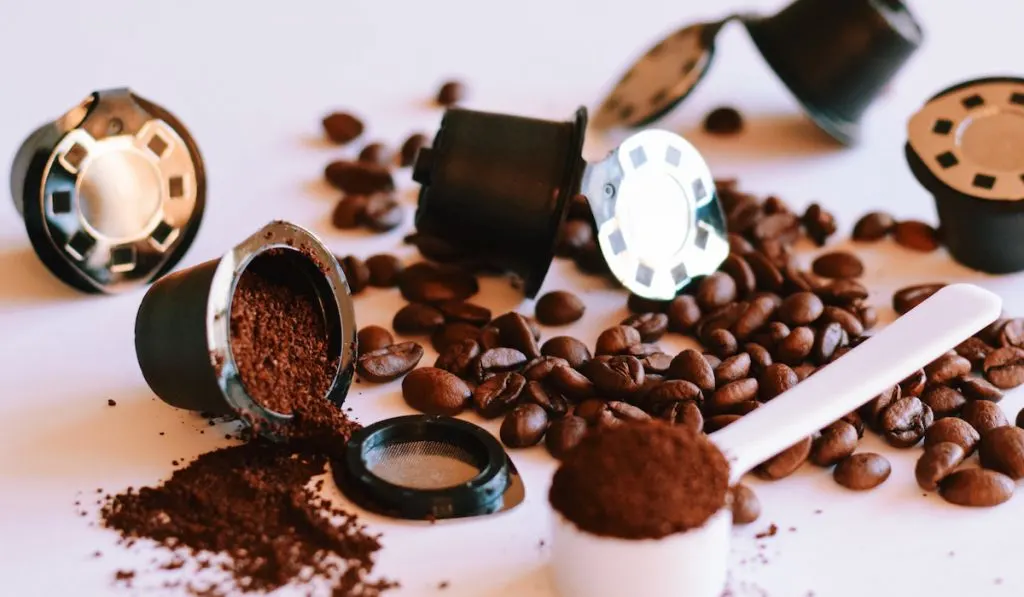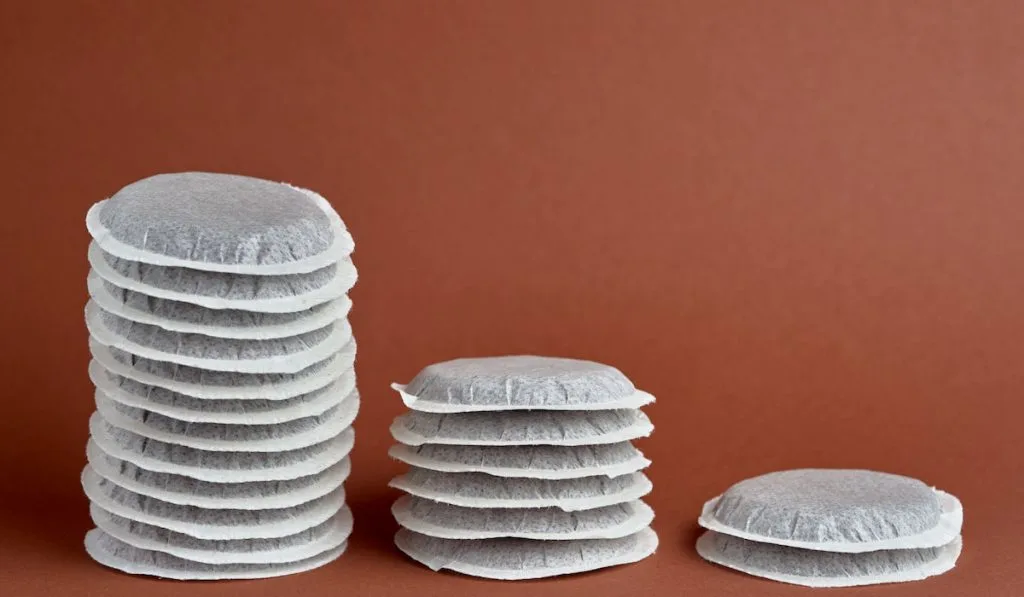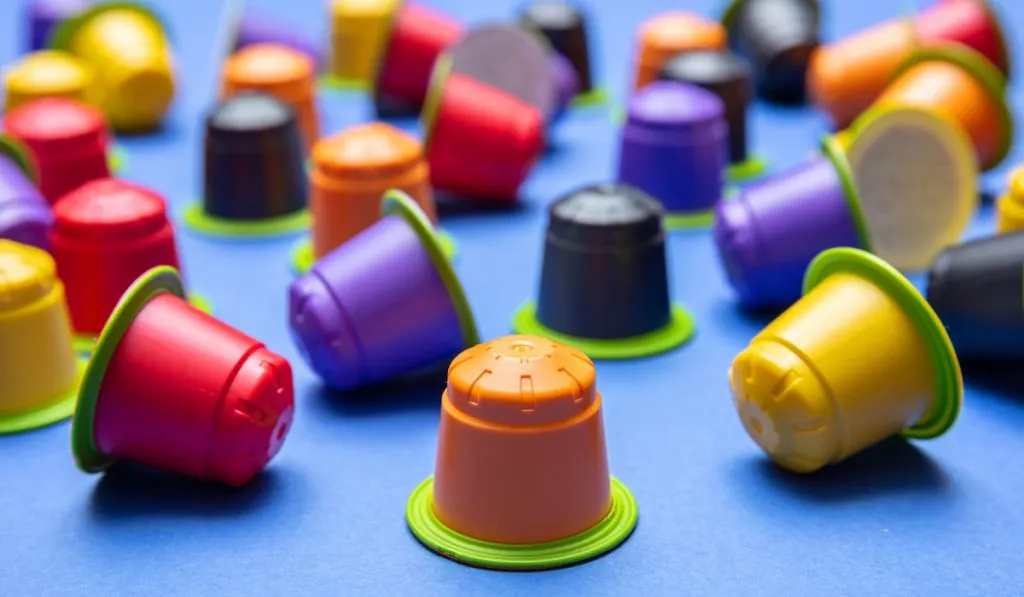For many, there is no greater way to wake up in the morning than that first sip of a warm cup of coffee. It used to be more difficult to manually brew your own coffee, but thanks to technology, coffee makers now allow us to make coffee from pre-portioned coffee pods. All you need to do is choose the pods to use according to your machine and follow the brewing instructions.
Coffee is prepared by brewing roasted and ground coffee beans. Ripe coffee fruits are harvested and the seeds are processed into a raw green coffee bean which is then roasted. This roasted bean is ground into fine particles that are steeped and filtered in hot water to give a cup of coffee.
Coffee pods and coffee capsules are common worldwide now. Because it is so easy to brew in the home, many people buy coffee pods in bulk or larger lots. What happens if they do not use them all by the expiration date?
Do coffee pods actually expire? Read on for a detailed insight.

What is a Coffee Pod?
A coffee pod is a pre-measured serving of coffee packaged in a sealed container that is ready to be put into a specific machine and infused with water to make one cup of coffee. Coffee pods should always be fully sealed and airtight to ensure no entry of moisture which is the prime cause of coffee deterioration.
Do coffee pods expire?
Not as such. Coffee pods do have a “best before’’ date, which delineates the length of time when the coffee contained inside is at its best. They can last well up to 12 months beyond this date provided that the storage conditions are optimum.
The question of whether or not coffee pods expire and the shelf life of coffee pods lies entirely on the packaging and storage conditions. Even though the product may last beyond the best by dates, and be safely consumed, these products may or may not lose some of their attributed qualities and flavor.
Types of Coffee Pods
There are many flavors of coffee, and many coffee-derived drinks that you can prepare, many of which used specialized machines or methods. Depending on the machine that you have, you may only be able to use one type of coffee pod. There are three types of pods used to hold coffee for individual machine brewing:
- Soft pods
- Hard pods
- Coffee capsules
Instant coffee, which is the easiest way of making coffee and does not necessarily need a machine, is another type of coffee entirely, and not to be confused with coffee pods.
Countless coffees of any flavor are found in both hard and soft pods, making those two the most popular types of coffee pods.
1. Soft pods

Soft pods are ideally made for use with coffee makers that do not utilize pressure and are commonly used to make drip coffee. They are designed to allow for maximum drainage of the brewed liquid which averages 8-12 grams per pod.
Soft pods are often preferred because they usually give less product waste, enhanced flavors, and better extraction from the grinds in the pods. However, soft pods have fewer options in terms of machines used to brew, flavors, and roast options.
2. Hard pods
Hard pods are stronger compared to soft pods and are designed for use in pressure-brewing machines. They can weigh up to 7 grams per single and 14 grams per double. They tend to produce a better, smoother, and more consistent flavor compared to soft pods.
Hard pods are hermetically sealed to keep them fresh and free of moisture, which is the single worst enemy of coffee pods. They come in different shapes and sizes depending on which machine they go in and are available in a wide range of brands, roasts, and flavors.
3. Coffee capsules
Many might confuse coffee capsules with hard pods and be tempted to think they are all the same thing but they are not.
Despite having the same contents, coffee capsules are designed for a specific machine, and cannot fit in another machine.
This has been a cause of frustration for many coffee lovers who, after buying a certain machine, cannot change their preference and try another type as their machine only allows for brands of capsules.
One fact about both capsules and pods is that they both cause a lot of product waste because they are discarded after each use. Refillable capsules and pods do exist, however, and can allow you to use freshly ground beans for your morning cuppa, making them possibly a better choice than the easy pre-packaged products.
How to keep coffee pods fresh
Coffee pods are sealed hermetically to prevent moisture from entering the pod, as mentioned before. This means that as long as the seal is intact and the pod is not broken or slit, the coffee inside is safe for brewing and consumption. Mold and bacteria can grow in coffee grounds exposed to moisture, so it is best to discard any compromised pods.

The pods should also be stored in a cool and dry place away from humidity and direct sunlight. Even though refrigerators have controlled temperatures, storage of coffee in refrigerators is not recommended due to the presence of moisture should there be a seal failure or the pods are punctured.
During storage, it is also important for you to check the pods regularly to ensure the seals are intact and all broken pods should be discarded.
It is recommended to separate the coffee from the packaging when disposing of coffee pods and using the spent grounds in compost piles. Many manufacturers have begun making pods out of recyclable materials because of the added load on landfills and disposal systems. Remember to look for this feature when you buy your coffee pods!
Conclusion
Coffee pods do not go bad even after their sell-by dates. They may lose some of their flavors after the indicated dates but are not unsafe to consume. Remember to note which type of coffee pod your machine uses and to dispose of them responsibly, or use refillable pods for the freshest brews.
Resources:
- https://www.recycleacup.com/do-coffee-pods-expire
- https://coffeemaker.top/do-coffee-capsules-expire
- https://expresspods.com.au/blogs/blog/coffee-pod-types-and-their-systems
- https://www.homegrounds.co/types-of-coffee-pods
- https://www.invigocoffee.com/blogs/news/how-long-do-coffee-pods-last-your-questions-answered
- https://www.coffeeforless.com/blogs/coffee-for-less-blog/k-cup-coffee-pods-will-they-stay-fresh-forever
- https://www.nespresso.com/au/en/news/how-to-store-your-coffee-pods
